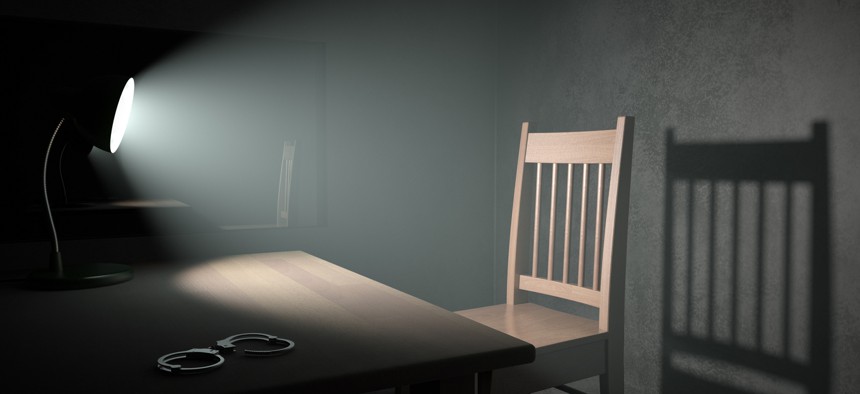States Look to Ban Police From Lying During Interrogations

istock.com/mevans
Lawmakers in Illinois approved legislation that would prohibit police from lying to minors during interrogations, and similar proposals are underway in other states.
Lawmakers in Illinois on Sunday passed legislation that prohibits police from lying to minors during interrogations, a legal practice that advocates say leads to high numbers of false confessions and wrongful convictions.
“When a kid is in a stuffy interrogation room being grilled by adults, they’re scared and are more likely to say whatever it is they think the officer wants to hear to get themselves out of that situation, regardless of the truth,” state Sen. Robert Peters, a Democrat from Chicago, said in a statement. “Police officers too often exploit this situation in an effort to elicit false information and statements from minors in order to help them with a case. Real safety and justice can never be realized if we allow this practice to continue.”
The bill, passed unanimously by the House and 47-1 in the Senate, makes confessions from minors inadmissible as evidence “if during the custodial interrogation, a law enforcement officer or juvenile officer knowingly engages in deception.” The legislation defines deception as “knowingly providing false information about evidence or leniency.”
Police are legally permitted to lie during interrogations in all 50 states, coaxing confessions from suspects by making claims that witnesses or friends have already confirmed their guilt, or saying that their DNA was found at the scene of a crime.
Those methods can lead to false confessions in both adults and minors, though research has found that children under the age of 18 are two to three times more likely to confess to crimes they didn’t commit when subjected to forceful interrogation tactics.
There have been at least 100 wrongful convictions in Illinois since 1900, according to the Center of Wrongful Convictions at the Northwestern University Pritzker School of Law. Thirty-one of those cases involved suspects under the age of 18.
Supporters of the legislation included the Illinois Innocence Project, the Illinois State Bar Association, the law office of the Cook County Public Defender, and Office of Cook County State’s Attorney Kim Foxx, who said in a statement that the legislation was a “critical step” toward ensuring that false confessions stop occurring.
“I hope this is a start to rebuilding confidence and trust in a system that has done harm to so many people for far too long,” she said.
But few law enforcement officers testified in support of the legislation, and members from more than a dozen police departments opposed the measure, as did Jim Kaitschuk, executive director of the Illinois Sheriffs’ Association, according to witness lists on the state legislature’s website.
Similar efforts are underway in other states, including a proposal passed last week by the Oregon Senate that would classify confessions as involuntary if a “peace officer intentionally used false information to elicit” it. Pending legislation in New York would go further, making deceptive tactics illegal in interrogations of both minors and adults.
Kate Elizabeth Queram is a senior reporter for Route Fifty and is based in Washington, D.C.





